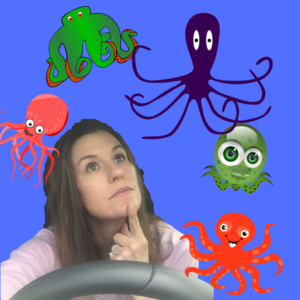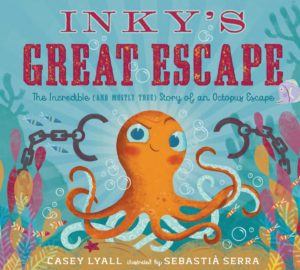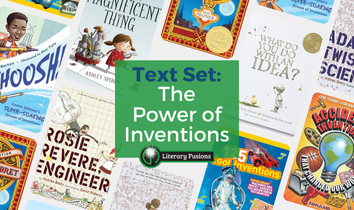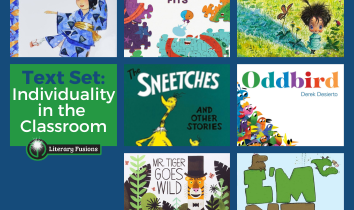I am officially obsessed with octopuses! Seriously! In February I visited a friend in  Seattle, Washington and we went to the aquarium. On the day we were there they were doing a special on octopuses. I heard crazy stories about how ridiculously intelligent they are and I got to watch one being hand fed! Who knew? Who knew that these floating sea animals were wickedly intelligent? I want one now (cue Veruca Salt from Willy Wonka).
Seattle, Washington and we went to the aquarium. On the day we were there they were doing a special on octopuses. I heard crazy stories about how ridiculously intelligent they are and I got to watch one being hand fed! Who knew? Who knew that these floating sea animals were wickedly intelligent? I want one now (cue Veruca Salt from Willy Wonka).
Why I Finished It:
This story is based on the actual disappearance of an octopus in New Zealand so I was excited because I had just heard the story while I was at the aquarium. This story obviously has taken liberty with the internal thought processes of Inky the Octopus and by creating his friendship with Blotchy. This relationship and interaction were incredibly amusing and relatable. Throughout Inky’s Great Escape, you’ll find a few allusions, strong vocabulary, and understated humor that makes the reader smile as they flip the pages. Also, Sebastià Serra’s pictures were fun and playful. The colors are bright and each element has intricate designs that remind me of batik. The pictures are clearly “cartoon-like”, but as the story has anthropomorphized octopuses I think it’s appropriate. How would you draw an accurate picture of an octopus playing crazy eights??
Who I Would Give It To:
It should be in all aquarium and zoo gift shops if it isn’t already, but Inky’s Great Escape is a fun read aloud and a great addition to a literacy classroom.
Author’s Website: https://www.caseylyall.com/
Integration Ideas:
Writing and Current Event/Nonfiction Connection
You definitely have to share the REAL Inky story with the kids. It blows my mind! The real question is not whether to share it or not, but when – before they read Inky’s Great Escape or after. And I don’t have a good answer. I think the answer is, whenever you think would be best. I heard the story in Seattle and then searched for the make-believe story about Inky. That was my motivation. So, I think it would be fun to activate kids’ schema with real events. Knowing that an escape had really occurred made this whimsical story even more fun. Of course, you could read the story to kids and have them share how crazy the events are before you tell them it really happened! Here is a link to the actual event.
After you read this account, definitely share stories of other incredible animal escapes. There have been so many! Here is a link to a few. This is where I would like to introduce story writing. The actual event of Inky’s escape is amazing, but the way author Casey Lyall creates a backstory for the octopus, bestows human qualities upon the octopus, and organizes the stories events into a timeline made it witty, engaging and fun to read. This is the perfect time to allow students to write the backstory to other animal escapees. Either in groups or alone, have students choose an animal that escaped. Ask them to think about why that animal might have escaped. I would offer some ideas, missed a sibling? Fell in love? Wanted to be famous? You could even write some ideas down and have students choose. Have students plan the protagonist and antagonist. Remind the students that the antagonist should make the positive qualities of the protagonist shine. There will be a problem, a few events leading to the problem, and of course the solution.
Vocabulary
I love when picture books for kids use strong vocabulary. Inky’s Great Escape did not shy away from using magnificent words sure to capture the readers’ attention. The best part is that Lyall masterfully weaves the rich vocabulary into the story so students are being exposed to rich vocabulary, but even if students aren’t familiar with the words, their enjoyment of the story is not hindered. Here are some examples:
He’d slithered his way out of every trap ever invented and lived to tell the tale.
… followed by a rousing game of charades.
Inky’s incredible idea for an ingenious escape.
Don’t stop there! Page after page boasts fabulous, dazzling words ready create vivid pictures for the reader. When I teach vocabulary to the students, I want them to love words as much as I do. I try not to “lecture them to death”. Instead, when we get to the word slither, I holler about the word. I share with the students how much “I love this word choice, especially for an octopus. Slither is different from walk or move, let’s all slither!” As a class, we will slither around the room. When we get to the word rousing, I will stop and explain what rousing means and offer suggestions for other times you could use the word. For the word ingenious, I will talk about people in my life who are ingenious! Of course, offer them time to share stories of ingenious people they know! I guarantee that this makes vocabulary SO MUCH MORE FUN! When it’s all said and done, I challenge the students to use some of those words when they speak or write. It isn’t an “order”, just a challenge. It’s amazing how many will try it out and then get excited to show you what they’ve done.
How will you use Inky’s Great Escape?








Leave a Reply